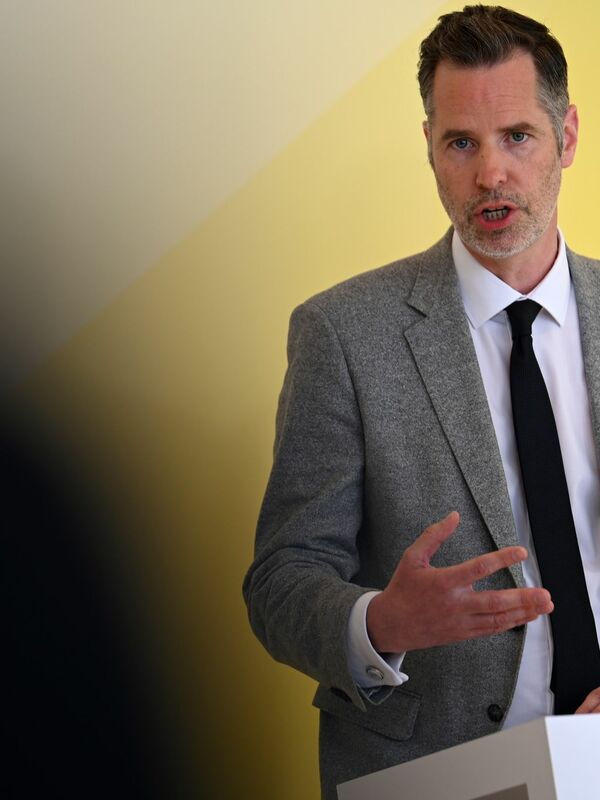Sciences Researcher: Using artificial intelligence to extend the life of electric car batteries
Ralf Herbrich, an artificial intelligence expert at the Hasso Plattner Institute, stands in front of the boards with mathematical prediction functions in his office. picture
© Jens Kalaene / dpa / archive image
Artificial intelligence tools will affect the world of work for many people. A well-known expert on AI also sees potential uses in combating climate change and saving energy.
In researcher Ralf Herbrich’s view, artificial intelligence (AI) will also play a larger role in climate protection and e-mobility in the future. An AI expert at the Hasso Plattner Institute in Potsdam is working on making electric car batteries more durable and improving the environmental balance. Herbrich of the German Press Agency in Potsdam said that artificial intelligence also has great benefits for the environment and for living in a more sustainable way.
AI-assisted control systems should help ensure that batteries in e-cars or laptops can last longer. Today, algorithms control the charging and discharging of individual battery cells to make the entire battery safe. And the computer scientist explained that in the future, these algorithms should also be able to extend the service life of the entire battery through targeted load distribution across individual battery cells. “These programs run on very small computers.” Ultimately, with better battery life, less lithium mining is required and less need to manufacture new battery cells.
“It’s an exciting idea,” said the Potsdam professor. “There’s a lot of vision involved.” It usually takes a few years of research and technology transfer process before the results are practically applicable. “Now I’m working on the beginning of this process.” The 48-year-old has been building the Department of Artificial Intelligence and Sustainability at the Hasso Plattner Institute and the University of Potsdam since 2022. He previously worked at Microsoft, Facebook, Amazon and Zalando.
But AI itself is also an energy consumer. In order to train them, large amounts of data are needed and the energy consumption is high, explained Herbrich, who is looking for more energy-saving algorithms. In the meantime, there is no longer any doubt that “algorithms can see like humans, they can also hear, and they can also write scripts.” The task now is to see if they can do this with the same energy consumption as the human brain. The ChatGPT script bot, for example, currently requires several times as much power as a brain.

“Alcohol buff. Troublemaker. Introvert. Student. Social media lover. Web ninja. Bacon fan. Reader.”





More Stories
Up to 100 pilot whales stranded in Western Australia – Science
Huge radiation explosion from a magnetar – forschung.de
Principles and features of the folk nutritional principle